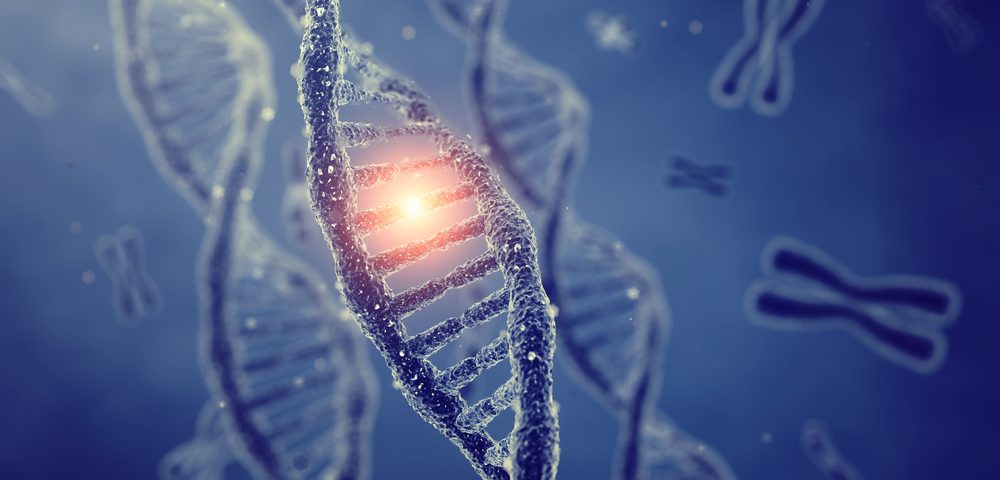An alteration in a single gene, the Fads1 gene, may determine the risk for certain diseases, including inflammatory syndromes like inflammatory bowel disease (IBD).
The study tracing the gene in human evolution and its effects, “PATZ1 down-regulates FADS1 by binding to rs174557 and is opposed by SP1/SREBP1c,” was published in the journal Nucleic Acids Research.
Two genes, called Fads1 and Fads2, are responsible for encoding the proteins (in this case, enzymes) involved in the processing of long-chain polyunsaturated fatty acids (LC-PUFAs). Linoleic acid (LA), an omega-6 fatty acid, and α-linolenic acid (ALA), an omega-3 fatty acid, are essential fatty acids for humans, because we cannot synthesize them. They need to be acquired directly through diet. Perturbations to the metabolism of LC-PUFAs are a potential risk factor for several diseases, including inflammatory and autoimmune diseases, such as IBD.
Previous studies suggested that variations in the gene sequence of Fads genes affected the synthesis of LC-PUFAs and, consequently, the risk for certain diseases. But which specific variations remained unknown.
Researchers at the Uppsala University/SciLifeLab in Sweden, investigating this subject, identified a mutation (gene defect) in the region encoding the Fads1.
The scientists showed that this region, which is now restricted to humans and chimpanzees, appeared 6 million years ago. They hypothesize that, since increased production of omega-3 and omega-6 is important for brain development, this genomic region may have contributed to human evolution. The mutation, researchers found, occurred 300,000 years ago and enhanced, even more, our capacity to produce LC-PUFAs.
The mutation represented an advantage, and was therefore selected throughout evolution. This resulted in the more active variant of FADS1, currently the most common such variant in large parts of the world.
Our diet, however, has changed significantly throughout the centuries. While previously people ate equal amounts of omega-3 and omega-6, diets today have much higher levels of omega-6 (found in meat and egg; omega 3 comes from fish and vegetables.).
This means that what was an evolutionary advantage is now a potential risk for disease. The genetic variation in Fads1 gene affects the levels of cholesterol (both low-density lipoprotein cholesterol, LDL, the “bad” cholesterol; and high-density lipoprotein cholesterol, or “good” cholesterol, HDL), but also of other fats. Moreover, it affects sugar levels in our blood and modulates our responses to certain treatments, such as those to control blood fat.
A high dietary intake of omega-6 fatty acids also increases the synthesis of pro-inflammatory players, thereby increasing the risk for inflammatory diseases, such as rheumatism and IBD.
Identifying this mutation may lead to the development of targeted therapies for treating some of these inflammatory diseases.

